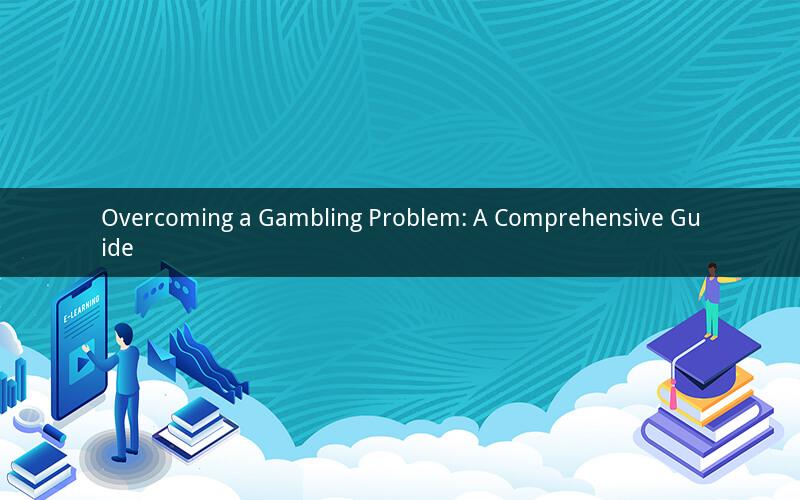
Gambling has become an increasingly popular pastime, but it can quickly turn into an addiction for some individuals. If you or someone you know is struggling with a gambling problem, it's crucial to understand how to recover and overcome this addiction. In this article, we will explore the steps involved in recovering from a gambling problem, the importance of seeking professional help, and the long-term strategies for maintaining sobriety.
Understanding the Gambling Problem
Before delving into the recovery process, it's essential to understand what a gambling problem is. A gambling problem, also known as problem gambling or gambling addiction, is characterized by an individual's inability to control their gambling behavior, despite the negative consequences it may have on their life. These consequences can include financial, emotional, social, and even legal issues.
Recognizing the Signs of a Gambling Problem
Identifying a gambling problem is the first step towards recovery. Some common signs of a gambling problem include:
1. Feeling the need to gamble more and more to get the same thrill.
2. Lying to family and friends about gambling activities.
3. Using gambling as a way to escape problems or relieve stress.
4. Missing work or school due to gambling.
5. Borrowing money or selling possessions to fund gambling habits.
6. Feeling restless or irritable when attempting to stop gambling.
Seeking Professional Help
Recovering from a gambling problem can be challenging, but seeking professional help is crucial. Here are some options for seeking professional assistance:
1. Therapists: A therapist can provide individual or group therapy sessions to help you address the underlying issues contributing to your gambling addiction.
2. Gamblers Anonymous: This is a 12-step program that can be an excellent resource for individuals struggling with gambling addiction.
3. Gam-Anon: This program is designed for family and friends of individuals with gambling problems, offering support and guidance.
4. Professional organizations: Many organizations, such as the National Council on Problem Gambling, offer resources and support for individuals struggling with gambling addiction.
Developing a Recovery Plan
Creating a recovery plan is essential for overcoming a gambling problem. This plan should include the following elements:
1. Setting goals: Establish clear, achievable goals for your recovery, such as reducing the frequency of gambling or eliminating it altogether.
2. Identifying triggers: Identify the situations, emotions, or people that may trigger your gambling behavior and develop strategies to avoid or cope with them.
3. Building a support network: Surround yourself with friends, family, and support groups who can provide encouragement and assistance during your recovery journey.
4. Developing healthy coping mechanisms: Find alternative activities or hobbies that can help you cope with stress or boredom without resorting to gambling.
5. Monitoring progress: Regularly assess your progress and adjust your recovery plan as needed.
Long-Term Strategies for Maintaining Sobriety
Maintaining sobriety from a gambling problem requires long-term commitment and dedication. Here are some strategies to help you stay on track:
1. Stay connected with support networks: Continue attending Gamblers Anonymous meetings or seeking support from friends and family.
2. Practice self-discipline: Develop a strong sense of self-discipline to resist the urge to gamble.
3. Focus on personal growth: Engage in activities that promote personal growth and self-improvement.
4. Set new goals: Establish new goals and challenges to keep you motivated and focused on your recovery.
5. Be patient and forgiving: Understand that recovery is a gradual process, and it's essential to be patient with yourself and others.
Frequently Asked Questions
1. Q: How long does it take to recover from a gambling problem?
A: The duration of recovery can vary from person to person. Some individuals may experience immediate success, while others may require ongoing support and treatment for several years.
2. Q: Can I recover from a gambling problem on my own?
A: While it's possible to recover from a gambling problem on your own, seeking professional help and joining support groups can significantly improve your chances of success.
3. Q: Will I always be at risk of relapse?
A: Yes, there is always a risk of relapse, especially in the early stages of recovery. However, by staying connected with support networks and practicing healthy coping mechanisms, you can minimize this risk.
4. Q: Can my family and friends help me recover from a gambling problem?
A: Yes, your family and friends can play a crucial role in your recovery. They can provide emotional support, encourage you to seek professional help, and help you stay accountable.
5. Q: Is there a cure for gambling addiction?
A: There is no single cure for gambling addiction, but there are effective treatments and strategies that can help individuals overcome this problem and maintain sobriety.